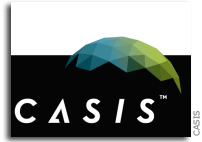References to CASIS in House Hearing on Space Station Utilization

Science, Space, and Tech Committee Hearing: Securing the Promise of the International Space Station
“In 2011 SLPSRA sought proposals from qualified entities to manage the ISS National Lab and on July 13, 2011 selected the Center for Advancement of Science in Space (CASIS). Until this time, NASA had managed the ISS National Lab, and sought to facilitate utilization of the ISS to conduct basic and applied research, technology development and industrial processing by U.S. federal, state and local government entities, and U.S. commercial, academic and non-profit entities.
It is unclear when this new organization will be able to accomplish these objectives, while striking a balance between basic and applied research, technology development and industrial processing. Already there have been management changes at CASIS. On March 5th the Executive Director of CASIS resigned after less than six months on the job.
Over the coming months, NASA and CASIS will need to coordinate their efforts to ensure there is no disruption of current research activities. CASIS will need to engage with other non-NASA agencies, academic institutions and private industry to expand opportunities for research. This work is an important step in fulfilling the promise of the ISS, and the Committee will be monitoring this activity.”
Democrats Emphasize the Need for a Clear Plan for Utilization of the International Space Station
“In short, we need clear, prioritized and integrated utilization plans from NASA, and we need to be assured that those plans are being carried out, both by NASA and by the independent ISS research management organization, CASIS, that was set up for that purpose.”
NASA: Significant Challenges Remain for Access, Use, and Sustainment of the International Space Station Statement of Cristina T. Chaplain, Director Acquisition and Sourcing Management, GAO
“To manage ISS National Laboratory research, as we recommended in 2009, NASA selected a body in 2011 to centrally oversee ISS research decision-making. This body, the Center for the Advancement of Science in Space (CASIS), is charged with developing and managing a varied research and development portfolio based on U.S. national needs for basic and applied research; establishing a marketplace to facilitate matching research pathways with qualified funding sources; and stimulating interest in using the national lab for research and technology demonstrations and as a platform for science, technology, engineering, and mathematics education. CASIS has begun outreach efforts and has issued a Request for Information due back in March 2012 that seeks to identify and gather information from entities capable of serving as implementation partners.
CASIS plans to develop an internal database from the information collected via this Request for Information, which will enable identification of entities that can support payload development needs according to their requisite areas of expertise. CASIS will refer to this database when issuing solicitations for funded opportunities to support research payload activities. Since the establishment of CASIS as the management body of ISS research is relatively recent, we have not examined its effectiveness; therefore, it is too early for us to say whether it will be successful in ensuring full scientific utilization of the station as a national laboratory.”
“In the NASA Authorization Act of 2005 (P.L. 109-155), Congress designated the U.S. segment of the ISS as a National Laboratory, and directed the Agency to seek to increase the utilization of the ISS by other Federal entities and the private sector. NASA has made solid strides in its effort to engage other organizations in the ISS program. Subsequently, in the NASA Authorization Act of 2010 (P.L. 111-267), Congress directed that the Agency enter into a cooperative agreement with a not-for-profit organization to manage the activities of the ISS National Laboratory. To this end, NASA issued a cooperative agreement notice on February 14, 2011, and on August 31, 2011, the Agency finalized a cooperative agreement with the Center for the Advancement of Science in Space (CASIS) to manage the portion of the ISS that operates as a U.S. National Laboratory.
CASIS is located in the Space Life Sciences Laboratory at Kennedy Space Center in Florida. The independent, nonprofit research management organization will help ensure the Station’s unique capabilities are available to the broadest possible cross-section of U.S. scientific, technological and industrial communities. NASA, with the help of the Office of Science and Technology Policy, put out a request for candidates for the permanent board that will guide CASIS’ efforts in this groundbreaking enterprise. NASA is working with CASIS’ interim Board of Directors to identify and evaluate a diverse group of outstanding individuals for that board.
CASIS will develop and manage a varied R&D portfolio based on U.S. national needs for basic and applied research; establish a marketplace to facilitate matching research pathways with qualified funding sources; and stimulate interest in using the national lab for research and technology demonstrations and as a platform for science, technology, engineering and mathematics education. The goal is to support, promote and accelerate innovations and new discoveries in science, engineering and technology that will improve life on Earth.
NASA’s National Laboratory partners can use the unique microgravity environment of space and the advanced research facilities aboard Station to enable investigations that may give them the edge in the global competition to develop valuable, high technology products and services. Furthermore, the demand for access to the ISS will support the providers of commercial crew and cargo systems. Both of these aspects of the U.S. segment of ISS as a National Laboratory will help establish and demonstrate the market for research in LEO beyond the requirements of NASA.”









